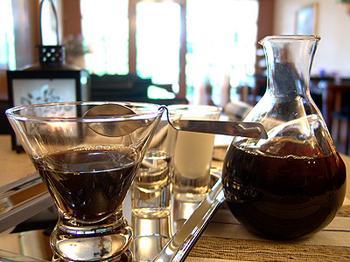Science tells you why coffee is excellent. Coffee is good.

Besides warming and refreshing, coffee has many benefits. In recent years, scientists have studied coffee's effects on various aspects of health, and the results may surprise you.
Here's why coffee is one of the healthiest drinks on earth.
Coffee can make you smarter.
It's not just refreshing, it makes you smarter. The stimulant in coffee is caffeine, the most common stimulant. Many experiments have shown that caffeine has positive effects on the brain, improving mood, reducing reaction time, improving memory, and improving alertness and cognitive function.
Summary: caffeine blocks neurons in the brain to stimulate them. Experiments have shown that caffeine is good for mood and brain functioning.
Coffee burns fat and improves physical activity
Let me explain why caffeine is the most economical way to burn fat. Caffeine has a stimulating effect on the central nervous system, increasing metabolism and oxidation of fatty acids. Coffee also boosts exercise by several mechanisms, including activating fatty acids from adipose tissue. Two separate meta-analyses showed that caffeine increased physical performance overall by 11 -12%.
Summary: Caffeine boosts metabolism and activates fatty acids from adipose tissue. It also improves physical activity performance.
Coffee May Lower Risk of Type 2 Diabetes
In observational studies, coffee has been found to be effective (23%-67%) in reducing the risk of diabetes. In 18 studies of 457,922 people, a cup of coffee a day reduced the risk by 7%. The more coffee people drink, the less risk they have.
Bottom line: coffee consumption reduces risk of developing type 2 diabetes. People who drink several cups of coffee a day are less likely to develop diabetes.
Coffee May Lower Risk of Alzheimer's and Parkinson's Disease
Not only does it make you smarter in the short term, it protects your brain as you age. Alzheimer's disease is the most common neurodegenerative disease in the world and the leading cause of dementia. Coffee drinkers reduced their risk of Alzheimer's disease by 60 percent in research studies. Parkinson's disease is the second most common neurodegenerative disease in the world, characterized by neural death in the brain. Coffee can reduce the risk of Parkinson's disease by 32% to 60%.
Bottom line: coffee significantly reduces the risk of neurodegenerative diseases alzheimer's and parkinson's.
Coffee is good for the liver.
The liver is the most important organ in the human body, undertaking hundreds of important body functions. In modern life, excessive drinking and sugar consumption can cause certain damage to the liver. Cirrhosis is the final stage of liver damage, caused by alcoholism or hepatitis, until liver tissue is essentially replaced by scarring. Many studies have found that coffee reduces the risk of cirrhosis by 80 percent, especially for people who drink more than four cups of coffee a day. Coffee can also reduce the risk of liver cancer by 40%.
Summary: Coffee has a protective effect on liver disorders, reducing the risk of liver cancer by 40% and cirrhosis by 80%.
Coffee reduces mortality
Many people still think coffee is unhealthy. It is not surprising that truth, when first proposed, is always suspected of being fallacy. In two large prospective epidemiological studies, coffee consumption reduced all-cause mortality. The effect on type 2 diabetes was also dramatic, with studies showing coffee drinkers had a 30 percent lower mortality rate over 20 years.
Summary: coffee has been found to reduce mortality in prospective epidemiological studies, especially in type 2 diabetes.
Coffee is packed with nutrients and antioxidants
Coffee is more than black water. Coffee beans are packed with nutrients, such as vitamins and minerals, that we can drink at the end.
Coffee is also rich in antioxidants. In fact, coffee has the most antioxidants of any Western food, more than vegetables and fruits combined.
Bottom line: coffee is rich in vitamins and minerals and is the most oxidising drink in the modern diet.
Important Notice :
前街咖啡 FrontStreet Coffee has moved to new addredd:
FrontStreet Coffee Address: 315,Donghua East Road,GuangZhou
Tel:020 38364473
- Prev

Which occupations drink coffee most often?
Here are the top 10 most coffee drinking occupations: 1. Journalists and media workers 2. Police 3. Teacher 4. Plumbers and construction workers 5. Nurses and doctors 6. Professional managers 7. TV sales staff 8.IT technical service personnel 9. Salesman 10. Driver
- Next

Drink different coffee to show different personalities. Do you drink Italian or individual?
There are many kinds of coffee, and there are many ways to make coffee. Many coffee lovers will know that drinking coffee has both advantages and disadvantages. It is the best refreshing drink in the office. But you know what? Coffee shows what kind of character you are. You don't believe me? Then let's take a look at your character! The practical pie of drinking instant coffee usually drinks three-in-one.
Related
- Beginners will see the "Coffee pull flower" guide!
- What is the difference between ice blog purified milk and ordinary milk coffee?
- Why is the Philippines the largest producer of crops in Liberia?
- For coffee extraction, should the fine powder be retained?
- How does extracted espresso fill pressed powder? How much strength does it take to press the powder?
- How to make jasmine cold extract coffee? Is the jasmine + latte good?
- Will this little toy really make the coffee taste better? How does Lily Drip affect coffee extraction?
- Will the action of slapping the filter cup also affect coffee extraction?
- What's the difference between powder-to-water ratio and powder-to-liquid ratio?
- What is the Ethiopian local species? What does it have to do with Heirloom native species?

